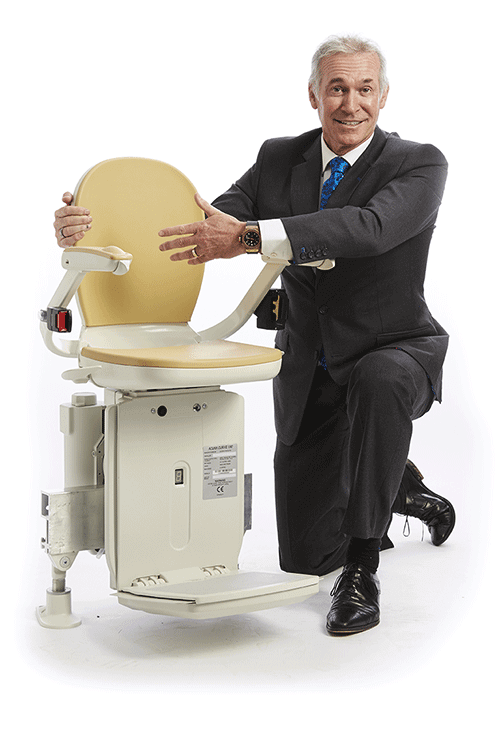Caregivers are experts at fulfilling others’ needs, constantly doting on people who require a helping hand.
However, ironically, many caregivers fail to fulfill their own needs, forgetting to care for their most important, lifelong patients—themselves.
When caregivers neglect to care for themselves for a prolonged period of time, all of the built-up stress and fatigue from caring for others around the clock can convert into a chronic condition known as Caregiver Stress Syndrome.
What is Stress?
According to the World Health Organisation, stress is defined as “a state of worry or mental anguish caused by a difficult situation.”
Although stress may have a negative connotation for many, stress is actually a natural and healthy human response designed to protect us—It prompts us to address challenges and threats in our life so that we can stay safe.
While a little stress in our lives is good for us and helps us perform daily tasks and activities, conversely, too much stress in our lives can harm our health.
When a person experiences too much stress in their life and finds themselves constantly stressed, or chronically stressed, it will begin to negatively impact both their mental and physical health.
Some common examples of this can be sleep deprivation, irritability, mood swings, a lack of appetite, overeating, substance abuse, headaches or other body pains, an upset stomach, anxiety, and depression.
What Is Caregiver Stress Syndrome or Burnout?
Caregiver Stress Syndrome, otherwise known as burnout, is a condition that is characterised by mental, physical, and emotional exhaustion.
Caregiver Stress Syndrome typically is the result of a person who is constantly caring for an injured, ill, disabled, or aging loved one and neglecting their own physical and emotional health.
As you might imagine, total absorption into caring for someone else, while failing to fulfill your own needs, can have dire consequences that significantly impact a person’s long-term health and wellness.
Some examples of the damage caused by chronic stress include:
- Depression
- Withdrawal from friends or family
- Anxiety
- Anger or irritability
- Feeling sad, hopeless, or helpless
- Unwanted feelings such as wanting to hurt yourself or the person you care for
- High blood pressure
- Diabetes, heart disease, cancer, arthritis, and heart attacks
- Compromised immune system
- Unhealthy eating habits such as not eating enough or overeating
- Weight gain or weight loss
- Disruption in sleep schedule
- Substance abuse
- Getting sick more frequently
How to Deal with Stress and Anxiety as a Caregiver—Tips for Maintaining Mental Health, Reducing Stress, and Stress Relief
1. Make sure that you are not the sole caregiver.
Being a caregiver already requires you to give so much of your time and energy to others, but being the sole caregiver can leave you feeling too drained and exhausted to even take care of yourself.
Even worse, if you feel like the person you are caring for is completely dependent on you, it can feel like taking time to care for yourself is at their expense, possibly putting their safety and health in danger.
While caregivers are amazing human beings who dedicate their time and energy towards helping others for long, grueling hours at a time, they are not machines that can run constantly without rest. We are all human, and realistically, relying on only one person at all times is unsafe and impractical.
This is why it is vital that there is always someone else that can care for the person, should you not be able to. Getting a neighbour or family member to fill in for you for even just a few hours can give you time to recover and return a renewed and rejuvenated version of yourself.
2. Give yourself regular breaks to recharge.
Everyone has a breaking point. However, for both you and your patient’s sake, you shouldn’t have to reach your breaking point in order to finally take a break.
Reaching your breaking point not only puts stress on your own emotional and physical well-being, but it can also cause you to take out your built-up frustrations on your undeserving patient, which is never okay.
Sadly, elder abuse is a common global issue, with around 1 in 6 people aged 60 and older experiencing some form of abuse in community settings during the past year, according to the WHO.
In fact, rates of elder abuse are high in institutions such as nursing homes and long-term care facilities, with 2 in 3 staff members reporting that they have committed abuse in the past year.
This is why it is so important that caregivers take regular breaks and manage their own mental and physical health, as neglecting self-care ultimately harms both the caregiver and patient. Even just a small break can give you enough time to take a breather, have some coffee, and reframe your mindset.
3. If you live with the person you take care of, make sure that you have your own personal space.
When you are working a full-time job as a caregiver and living with the person you care for, it can be hard to implement boundaries that separate your personal life from your work life.
For this reason, if you do live with the person you care for, it is especially important that you set both physical and emotional boundaries within the shared living space.
You can do this by having your own designated room or living area, as well as mapping out a defined work schedule that distinguishes your working time from your free time.
Having a personal space allows you to physically remove yourself from your work environment, escaping to your safe haven for privacy, rest, and time alone.
4. Get enough sleep every night.
Never underestimate the power of a good night’s sleep.
Getting a good night’s sleep keeps you active and alert throughout the entire day, improving your overall quality of life.
Conversely, not getting enough sleep causes the opposite effects, leaving you groggy and grumpy throughout the day and more likely to snap at your patients or crumble under the pressure of long working hours.
Most adults require between 7 and 9 hours of shuteye, so if you would like to continue shining light into the lives of others, it’s time for lights out.
5. Fuel your body with healthy foods.
Your body is a complex machine with many moving parts, so what you choose to fuel it with matters significantly.
Nourishing your body with healthy foods not only keeps you energised throughout the day while working long shifts, but it also improves your overall wellbeing, including both your mental and physical health.
For example, here are a few of the benefits that you can experience from providing your body with the proper nutrients:
- May help you live longer
- Keeps skin, teeth, and eyes healthy
- Supports muscles
- Boosts immunity
- Strengthens bones
- Lowers risk of heart disease, type 2 diabetes, and some cancers
- Supports healthy pregnancies and breastfeeding
- Helps the digestive system function
- Helps achieve and maintain a healthy weight
Before the beginning of each week, fill your fridge with nutritious foods you would like to incorporate into your diet such as fresh fruits and veggies, protein-packed produce, fibrous foods, and whole grains.
Stay prepared by planning out what healthy meals and snacks you would like to eat throughout the week. You can even cook food ahead of time and package it up so that all you have to do is heat it up when it’s time to eat.
For convenience and cutting down time, remember to include easily transportable snacks that you can reach for even when you’re in a rush such as apples, carrots, and hard-boiled eggs.
6. Set aside leisure time just for you.
Part of taking care of yourself as a caregiver is setting aside time for yourself and the things in life that make you happy.
Much like the way that you dedicate time to your loved ones, encouraging them to pursue their own happiness, you must do the same for yourself.
If you enjoy being in nature, go for a short stroll around the lake. Watch an episode of your favourite show, bake a pie, soak in a relaxing bubble bath, or paint—Whatever it is that makes you happy, make a little time for yourself every day to do the things you love. A happy and healthy you is the best you.
7. Prioritise your own mental and physical health.
It may seem counterintuitive as a caregiver, but taking care of yourself and prioritising your own mental and physical health actually allows you to better care for others.
Caregiving is not meant to be at your own expense, sacrificing your personal needs for the sake of others. After all, if you are not at your best, how are you supposed to give others your best?
You know yourself better than anyone else does.
Treat yourself the same way you would treat the loved ones that you care for. Listen to your body and don’t push your thoughts and feelings to the side.
If something feels off, whether mentally or physically, check in with a doctor or therapist and allow yourself to be cared for. You are a valuable human being with worth and purpose, and just like your patients, you deserve only the best care.
8. Look into hiring outside help or finding a replacement.
Sometimes we have to accept that we are human and can’t do everything by ourselves.
If you find yourself feeling extremely overwhelmed or debilitated by Caregiver Stress Syndrome, it’s time to explore other care options for the sake of both you and your loved one. Both of you deserve better.
One possible option to help relieve you of this excess stress is finding a friend or family member who can replace you or hiring a caregiver so that you and your loved ones’ needs are both being met.
Remember that it is important to be selective of who you choose to be your loved one’s caregiver or which family member they live with.
If you are finding friends and family who are willing to take care of your loved one, it helps to divide the tasks among them so that all of the responsibility doesn’t fall on a single person. This prevents one person from getting overly stressed and taking out their frustration on the elderly person. It is also important to be wary of which family members or friends you allow to take care of them, as people with a history of abuse, violence, or short tempers are not good choices for caregivers.
If you decide to hire a professional caregiver, make sure that they go through a thorough background check. Before selecting a nursing home for your loved one to live in or a caregiver to help them out, it is essential that you do your research to ensure that your loved ones are in the best of hands.
Read reviews on each caregiver candidate, talk to their patients about their experiences with this person, and reflect on what qualities are most important to you in a caregiver.
What are qualities that a caregiver must possess in order for you and your loved one to be satisfied with the care they’re receiving? Now is the time to figure out your “must haves” and “deal breakers” so that you can choose a caregiver who is right for your loved one.
Even after selecting a caregiver, be sure to observe the way that they interact with the senior, as well as monitor your loved one’s mental and physical health.

